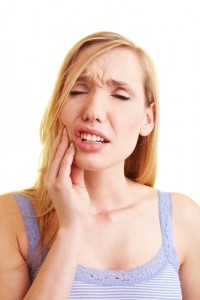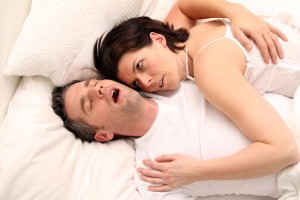 There’s a term you may have come across if you’ve visited our site before. It’s a term that sounds complicated but actually concerns a simple and common condition. We’re talking, of course, about neuromuscular dentistry.
There’s a term you may have come across if you’ve visited our site before. It’s a term that sounds complicated but actually concerns a simple and common condition. We’re talking, of course, about neuromuscular dentistry.
What is it?
In short, neuromuscular dentistry looks at your jaw muscles, your jaw joints, and how your teeth fit together (also known as occlusion). When a problem occurs in one of these areas, the result can be painful symptoms like frequent headaches, neck or shoulder pain, ringing in the ears, and more.
The two conditions most commonly associated with neuromuscular dentistry are TMJ disorder and bruxism. But the good news for patients from Beachwood and surrounding areas is that both of these can be effectively treated. With the use of an orthotic appliance, Dr. Hornstein can deliver comfortable relief that will help you preserve your smile and reclaim your life.
Protect Your Smile with an Orthotic Appliance
An orthotic appliance is custom-made for your smile so that it fits comfortable over your teeth. They’re designed to correct your bite, bringing it into its natural alignment and easing strain on your joints and muscles.
Have you recently learned that you have a neuromuscular condition like TMJ disorder or bruxism? Call The Center for Advanced Dentistry to schedule an appointment with Dr. Hornstein. During your appointment, Dr. Hornstein can talk to you about your situation and begin working on a treatment plan to help you save your smile and reclaim your life.

 It can be hard to feel confident when your smile’s missing one or more teeth. But missing teeth can affect more than your confidence—they can also have a serious impact on your oral health.
It can be hard to feel confident when your smile’s missing one or more teeth. But missing teeth can affect more than your confidence—they can also have a serious impact on your oral health. When food particles and bacteria find their way into the pits and grooves in your teeth, tooth decay is the result. That’s why brushing and flossing are so important. By maintaining a regular brushing and flossing routine, you’re giving your smile the protection it needs to stay strong and healthy.
When food particles and bacteria find their way into the pits and grooves in your teeth, tooth decay is the result. That’s why brushing and flossing are so important. By maintaining a regular brushing and flossing routine, you’re giving your smile the protection it needs to stay strong and healthy. Teeth can become stained for several reasons. One of the biggest is age, but certain beverages (like tea or coffee) can have a major effect, too, as can smoking and even certain medications. But with
Teeth can become stained for several reasons. One of the biggest is age, but certain beverages (like tea or coffee) can have a major effect, too, as can smoking and even certain medications. But with  Do you try to masque chronic
Do you try to masque chronic  If you snore at night or suffer from symptoms like irritability, difficulty concentrating, morning headaches, or daytime drowsiness, you may have
If you snore at night or suffer from symptoms like irritability, difficulty concentrating, morning headaches, or daytime drowsiness, you may have